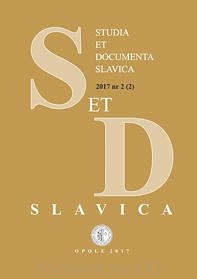NIECHCIANA RELACJA Z CZESKICH OBOZÓW PRACY –
TWÓRCZOOŚĆ KARELA PECKI
AN UNWANTED ACCOUNT FROM CZECH LABOR CAMPS –
THE OUTPUT OF KAREL PECKA
Author(s): Dorota BielecSubject(s): Czech Literature
Published by: Uniwersytet Opolski
Keywords: communism; labor camps; autobiography; testimony; moral dilemma
Summary/Abstract: The article is devoted to interpretation of the autobiographical novels by Karel Pecka.The author took on the role of a spokesman of the generation of the 1950s in Czechoslovakia, or at least this part of it which was inherited by a similar fate. Using fiction, the author wants to convey that this is not the only one – Karel Pecka, who was a victim of the nineteen-fifties, but there were many like him. The moral message of Pecka’s novels is very firm, because it appears to be not a result of thinking individuals, but an outcome of part of society. He constructs his novels in such a way that the main character is always in a situation in which they must make a choice, and this is, in a sense, the ultimate choice. This kind of reflection certainly was not convenient for the communist authorities, the writer’s attitude caused his exclusion from theCzechoslovak official literary life.
Journal: Studia et Documenta Slavica
- Issue Year: 2/2017
- Issue No: 2
- Page Range: 33-45
- Page Count: 13
- Language: Polish

